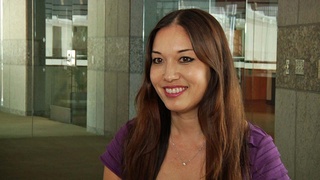Interviews
Being a Nikkei today (Spanish)
(Spanish) Being a Nikkei.... You know this word started to appear as part of conversations beginning this past decade... by the end of the 80’s. However, it is a word that gained currency as a result of its frequent use. Like every word, it is a result of frequent use. For example, we can come to an agreement that the word “chair” describes what you and I have in our minds. That is “chair”. We know that Nikkei is a Japanese descendant from Japan, but the interesting part is how this came up in academies, conventions, seminars, and how the population turned it on their own. “Jap” is a popular word. “Of the eye” is a popular word. But in the schools, seminars, people were not going to talk about “the Japs”, “Of the eye”. So the word Nikkei was created, and the interesting thing is how this word, by the citizen, by the Nikkei, the standard Nikkei, has made it theirs in less than 10 years. They themselves describe themselves as Nikkei. Interesting. Why? It’s because we’re a very demanding and intelligent culture. We absorb what we see, and we understand the issue. But now I think that “Nikkei” is going to go beyond that. The word, the concept Nikkei is going to go beyond the biological. There is going to be a moment when Nikkei becomes a way to categorize working people, very close people. There is even going to be a moment in the future of Peru when people say, as they say, “work like a negro” or “smoke like Chinese in bankruptcy”, They are going to say “he seems like a Nikkei”, a person that works a lot, quietly, or does not complain, or something like that.
Date: February 26, 2008
Location: Lima, Peru
Interviewer: Harumi Nako
Contributed by: Asociación Peruano Japonesa (APJ)
Explore More Videos


Re-examining Identity
(1941-2018) Japanese Canadian photojournalist and activist

Fitting in to both sides of her family
Jewish Japanese American journalist




Conflicted about immigrating to America (Japanese)
(b. 1925) War bride

Defining "Nikkei"
(1941-2018) Japanese Canadian photojournalist and activist

The term Nikkei (Japanese)
(b. 1979) Sansei Nikkei Brazilian who lives in Oizumi-machi in Gunma prefecture. He runs his own design studio.

Unique Identity from Having Multiple Backgrounds
(b. 1938) Philipines-born hikiagesha who later migrated to the United States.

Growing up Japanese in Hawaii
(b. 1952) Former banking executive, born in Hawaii



Parents identification as Peruvian Okinawan
Okinawan American whose parents are from Peru.

Okinawan cultural appreciation
Okinawan American whose parents are from Peru.
